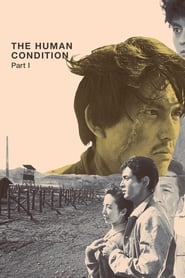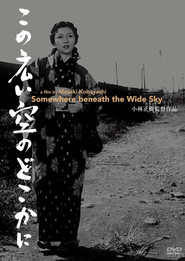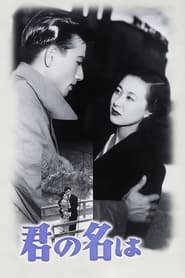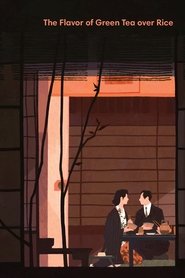detail profile jun tanizaki
Peran Yang Di Mainkan Jun Tanizaki
 A Tokyo family escaping the war...
A Tokyo family escaping the war...A Legend, or Was It? 1963
A Tokyo family escaping the war relocates to a Hokkaido village; their daughter is set to marry the local leader's son, but her siblings disapprove.
 In a time of continuous civil...
In a time of continuous civil...The River Fuefuki 1960
In a time of continuous civil wars ravaging the fields of feudal Japan, the eldest son of a very poor peasant family, living alongside the bridge over the Fuefuki river, decides to serve a warlord to escape his miserable condition, being soon followed by his younger brothers. Although not all the men of the family take this tragic path of death, women of the family will be doomed to endure the pain of loss during the next five generations.
 After handing in a report on...
After handing in a report on...The Human Condition I: No Greater Love 1959
After handing in a report on the treatment of Chinese colonial labor, Kaji is offered the post of labor chief at a large mining operation in Manchuria, which also grants him exemption from military service. He accepts, and moves to Manchuria with his newly-wed wife Michiko, but when he tries to put his ideas of more humane treatment into practice, he finds himself at odds with scheming officials, cruel foremen, and the military police.
 A young Tokyo salary man and...
A young Tokyo salary man and...Early Spring 1956
A young Tokyo salary man and his wife struggle within the confines of their passionless relationship while he has an extramarital affair.
 Noriko is perfectly happy living at...
Noriko is perfectly happy living at...Late Spring 1949
Noriko is perfectly happy living at home with her widowed father, Shukichi, and has no plans to marry -- that is, until her aunt Masa convinces Shukichi that unless he marries off his 27-year-old daughter soon, she will likely remain alone for the rest of her life. When Noriko resists Masa's matchmaking, Shukichi is forced to deceive his daughter and sacrifice his own happiness to do what he believes is right.

 A talent scout moves sharply deadset...
A talent scout moves sharply deadset... A group of rankandfile Japanese soldiers...
A group of rankandfile Japanese soldiers... This drama of middleclass life in...
This drama of middleclass life in... Machiko Ujiie and Haruki Atomiya first...
Machiko Ujiie and Haruki Atomiya first... The arranged marriage between a capricious...
The arranged marriage between a capricious... A rural village elder plans an...
A rural village elder plans an...